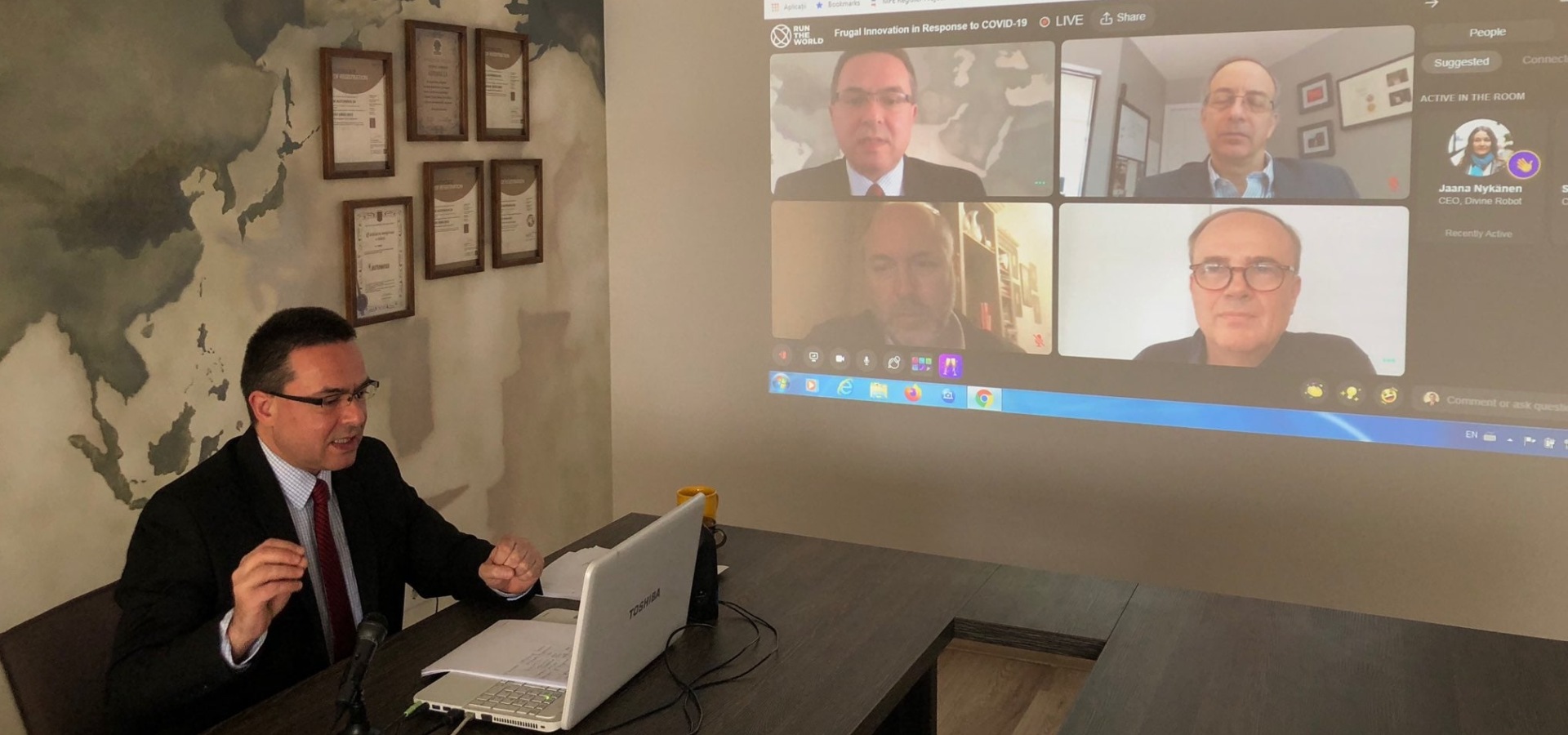Espírito Santo strengthens its ecosystem with a focus on impact-driven businesses
With public policies and financial support, the state seeks to attract startups and establish itself as a hub for innovation
Espírito Santo (ES), a state located in southeastern Brazil, has been gaining prominence as a promising hub for innovation and technology, with a particular focus on impact-driven businesses and sustainable development. This movement is driven by the collaboration between the private sector, government, and universities, which are working together to create an ecosystem that fosters the growth of new ventures and benefits the entire region.
The project gained momentum just over a year ago when the Espírito Santo government restructured the Secretariat of Environment and Water Resources (SEAMA) to address the challenges of climate change and find solutions to mitigate its economic and socio-environmental impacts. As a result, the government created new undersecretariats, including the Undersecretariat for Sustainable Business Development and Impact Investments (SUBFNS), aimed at integrating environmental conservation with economic development.
“Innovation is at the heart of every impact-driven business,” says Eizen Wanderley, the Under Secretary of SUBFNS. “That’s because running an impact business means rethinking processes, products, models, paths, and economic consumption and investment journeys,” she explains.
According to Eizen, although Espírito Santo has strategic infrastructure and resources dedicated to supporting impact-driven businesses, one of the main challenges facing the local ecosystem is the lack of awareness among entrepreneurs. Many companies and startups in the state do not yet recognize themselves as impact-driven businesses or are unaware of the funds and programs available to support them.
“We noticed that many impact-driven businesses—projects related to waste management, circular economy, climate change, among others—did not perceive themselves as such. So, there is a significant effort to build the identity of these companies,” Wanderley explains. This lack of self-recognition limits their visibility and their ability to access existing incentives and funding.
To change this reality, the government has been working to create a clearer narrative around the role of impact-driven businesses in the state’s socio-economic development. “The great challenge, and also the greatest opportunity, is to project the state, to talk more about what we are doing, and to place Espírito Santo where it belongs, showcasing everything we have
already accomplished and the opportunities we have to further boost the region,” says Wanderley. The undersecretariat is promoting initiatives to connect local entrepreneurs with resources and strategic partnerships, strengthening the identity of Espírito Santo’s ecosystem and positioning it as an innovative hub aligned with global sustainability trends.
Public Policies
One of the main strategies of the Espírito Santo government to foster the innovation ecosystem has been to create a regulatory environment and provide financial support for impact-driven businesses. “We have a law that makes over 10 public funds available to impact businesses, including education, early childhood, infrastructure, and environmental funds. The state’s own legislation, with Law 1027/2022, already establishes guidelines for these resources to be directed towards businesses that contribute to sustainable development and innovation,” says Wanderley.
In addition to these funds, the state has a Sovereign Fund, FUNSES1. Created in 2019 with resources from oil exploration, FUNSES1 aims to attract new businesses, generating jobs and income for the local population. The investment fund has a total of BRL 250 million to support startups of various sizes, sectors, and areas of operation, with individual investments of around BRL 500,000 each.
The initiative is offered jointly by the Espírito Santo Development Bank (Bandes), the State Government, ACE Ventures, and Quartzo Capital, providing the necessary resources, expertise, and support for companies to grow, accelerating Espírito Santo’s presence on the national innovation map and attracting investors. FUNSES1’s portfolio already includes startups like naPorta, Frota 162, Conducco, Twiggy, Multifidelidade, Persora, and Kuke.
Wanderley adds that Espírito Santo was the second state in the country – after Rio Grande do Norte – to create a state committee for impact-driven businesses.
Building bridges
The region has been working to create conducive environments for innovation, such as the ES+ hub and Ilhahub. The ES+ Hub is a collaborative space focused on the development of new economies, while Ilhahub is an initiative centered on the Blue Economy that explores the potential of the maritime economy and its sustainable developments, considering the strategic geographic location of the state.
Additionally, the Federal Institute of Espírito Santo (IFES) launched the Innovation City, which focuses on transformative solutions in partnership with society for human, economic, and sustainable development. The region also features players like Das Pretas, a 100% Afrocentric innovation and social technology lab, and Base 27, an innovation hub that promotes connection and collaborative learning to encourage the development of the ecosystem and the economy.
These collaborative spaces enable the integration of startups, companies, and educational institutions in projects that connect sustainability and economic development. They also open new opportunities for both traditional and emerging businesses to experiment, prototype, and scale innovative solutions, supported by robust infrastructure and targeted public policies.
“More than just a movement, there is a shared intention emerging from collaborative governance among the government, private sector, civil society, and academia. Everyone is working together to think of solutions. Initially, we will look locally and attract technologies to empower our territory, and then we can export these methodologies to other regions,” says Priscila Gama, the manager of sustainable business development for the Espírito Santo State Government.
Opening doors
Espírito Santo is the second most industrialized state in Brazil, with the industry accounting for about 38.3% of the region’s Gross Domestic Product (GDP), according to data from IBGE compiled by the Observatory of Industry of the Federation of Industries of Espírito Santo (Findes). “One of the biggest challenges in terms of carbon emissions lies in the industry, followed by the energy and transportation sectors. On the other hand, we have significantly reduced deforestation and improved waste management,” says Gama.
To continue this work, Espírito Santo has structured a Decarbonization Plan with goals and strategies to neutralize Greenhouse Gas (GHG) emissions by 2050 and achieve climate resilience. “There is a strong appetite for sustainable development, which creates even more demand for new technologies and increasingly sustainable, impactful solutions,” highlights Gama.
For this reason, the region has a strategic vision for climate techs, startups that develop technological solutions to mitigate the effects of climate change, reduce greenhouse gas emissions, and promote sustainable practices across different sectors of the economy. Recently, the State Secretariat for Environment and Water Resources of Espírito Santo joined forces with Findeslab, Bandes, and Eletrobras, with support from Deloitte, ABStartups, i2i Institute, and FEA Angels, to promote ClimatechES, an event that brought together climate techs from across Brazil to present the opportunities and guidelines that Espírito Santo already offers these companies.
“Bringing together so many players from the ecosystem to attract businesses is a great achievement,” assesses Gama. The expectation is that, following the event, new partnerships will be established and potential business partners will come closer, expanding Espírito Santo’s presence in the Brazilian innovation landscape. “With this first event in São Paulo, we will be able to create caravans to Espírito Santo. We will break barriers, open more space for institutions, and strengthen the local ecosystem, encouraging people to better understand what we are doing,” she concludes.
Article by Gabriela Del Carmen, Journalist at Startups.com.br, Brazil
Featured photo of Brazil’s flag



